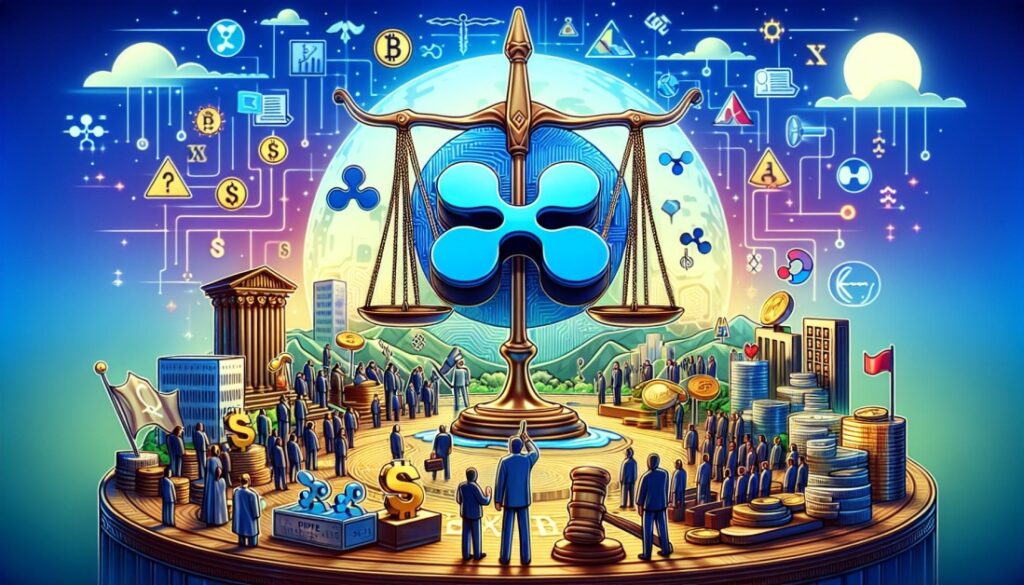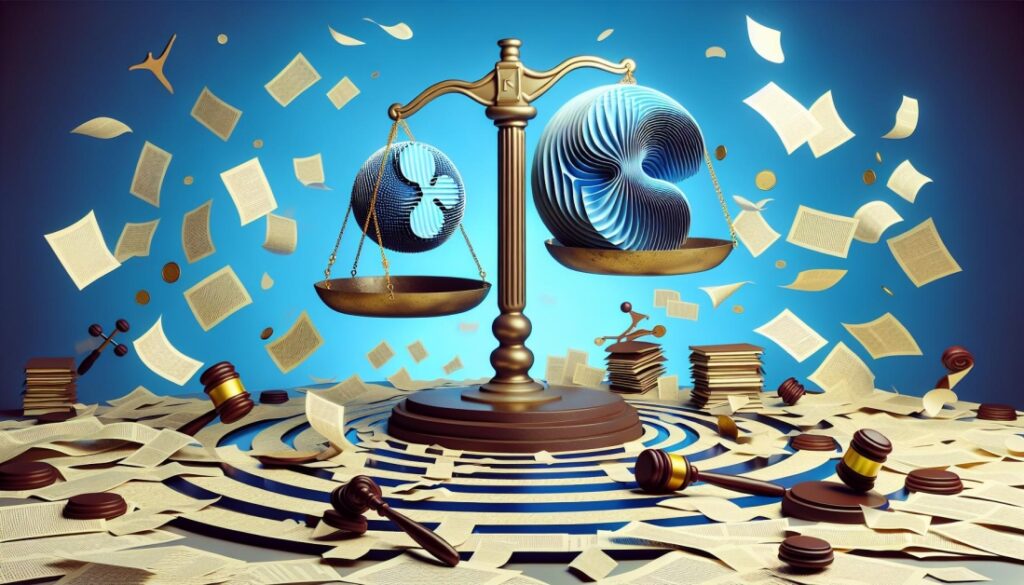What Ripple’s Partial XRP Gain Means for Other Crypto Firms Fighting the SEC

A US court ruling that falls partially in Ripple’s favor could bode well for other cryptocurrency firms dealing with a Securities and Exchange Commission lawsuit – provided the decision survives a possible appeal.
This year, the SEC has cracked down on exchange platforms like Coinbase (COIN), Binance, and Bittrex for allegedly operating unregistered trading platforms that list the agency’s unregistered securities, including Cardano (ADA), Solana (SOL). Polygon (MATIC) and Filecoin (FIL). After the U.S. District Court for the Southern District of New York ruled Thursday that certain sales and distributions of XRP tokens by Ripple and its executives did not constitute investment contracts, these other defendants may have a new arrow in their quiver.
“This is a significant opinion that has the potential to change the landscape of the SEC’s enforcement efforts, or the success of those efforts,” said Teresa Goody Guillén, a former attorney in the SEC’s Office of General Counsel and now a partner with the SEC BakerHostetler Law Firm. “This also provides a helpful precedent for Coinbase and Binance to defend themselves against allegations that they are operating as unregistered securities exchanges, brokers and clearinghouses.”
Several legal experts quickly ducked the furore, arguing that the summary judgment might be on shaky ground and might not result in the hoped-for change in the way the crypto industry is treated by the SEC.
“The SEC will be watching for those parts of the court decision that are in its favor to reflect its ongoing views on the regulatory status of coins and tokens – meaning that they are all securities - and its continued approach to enforcing those views about the industry,” wrote Joe Castelluccio, head of the fintech and digital assets, blockchain and crypto groups at law firm Mayer Brown, in an email.
According to Castelluccio, the parts of the decision that go in favor of Ripple are “quite fact-specific, and while there may be some in the market who are similarly positioned, it can be difficult for others in the market to commit leave parts of the decision when their circumstances do not directly match.”
Castelluccio added that the case “does not provide regulatory or legal clarity on the numerous other regulatory issues faced by the digital asset sector.”
The U.S. Southern District Court of New York’s summary judgment on Thursday ruled, that certain sales and distributions of XRP tokens by Ripple and its executives were not investment contracts — and therefore do not violate securities laws — as the SEC alleged in a 2020 civil lawsuit.
The industry clung to the news that a federal judge had essentially declared that token sales on exchanges weren’t investment contracts, even though institutional sales of XRP to hedge funds and the like counted as securities in the same ruling.
”The court rejects the view that cryptocurrency tokens are securities, which has previously caused widespread confusion,” said Jeffrey Alberts of Pryor Cashman LLP, adding that the judge clarified in her ruling that crypto tokens themselves are not securities.
Congratulations and shouts of “LFG” — internet slang for “onward and upward,” at least in the G-rating translation — interspersed as CEO Brad Garlinghouse tweeted that Ripple is “on the right side of the law and will be on the right Take the side of history.”
The price of the XRP token surged as much as 96% on Thursday following the news.
“There is no way the Ripple decision can be viewed as anything other than a victory for the crypto industry. XRP is not a security and the company and executives’ XRP transactions in the secondary market do not violate securities laws,” Christian Schultz, a former SEC law enforcement officer, told AskFX in an email.
Arthur Jakoby, a partner at Herrick, Feinstein LLP, echoed Goody Guillén in saying the ruling undermines the SEC’s position that secondary sales of digital assets on exchanges like Coinbase den Sale of unregistered assets constitute securities.
“If this decision is upheld on appeal, it will significantly limit the SEC’s jurisdiction over the crypto market,” Jakoby said.
While no other district judges are required to follow this ruling’s reasoning, it “could pose problems for the SEC in other pending litigation, particularly those focused primarily, if not exclusively, on secondary market activity,” Schultz said.
In addition to the sales of institutional sales to raise funds for various projects. Although Ripple has denied conducting a single XRP offering, the SEC’s lawsuit alleges that Ripple sold approximately $728.9 million in XRP in institutional sales.
“I would expect the crypto industry to look for creative ways to achieve an initial distribution of digital assets that avoids the facts and circumstances that led to this judge finding that there is an investment treaty security in relation to on the digital asset,” Schultz said.
Preston Byrne, corporate partner in law firm Brown Rudnick’s digital commerce group, wrote in a comment that the ruling — which concluded that institutional sales of a token — could be flawed and vulnerable to an overthrow , if the SEC decides to appeal the decision.
Although Thursday’s ruling was in response to requests for summary judgment by the SEC and Ripple to prevent the case from being heard, parts of the rejected requests – including the institutional sales of XRP - are being taken to court.




